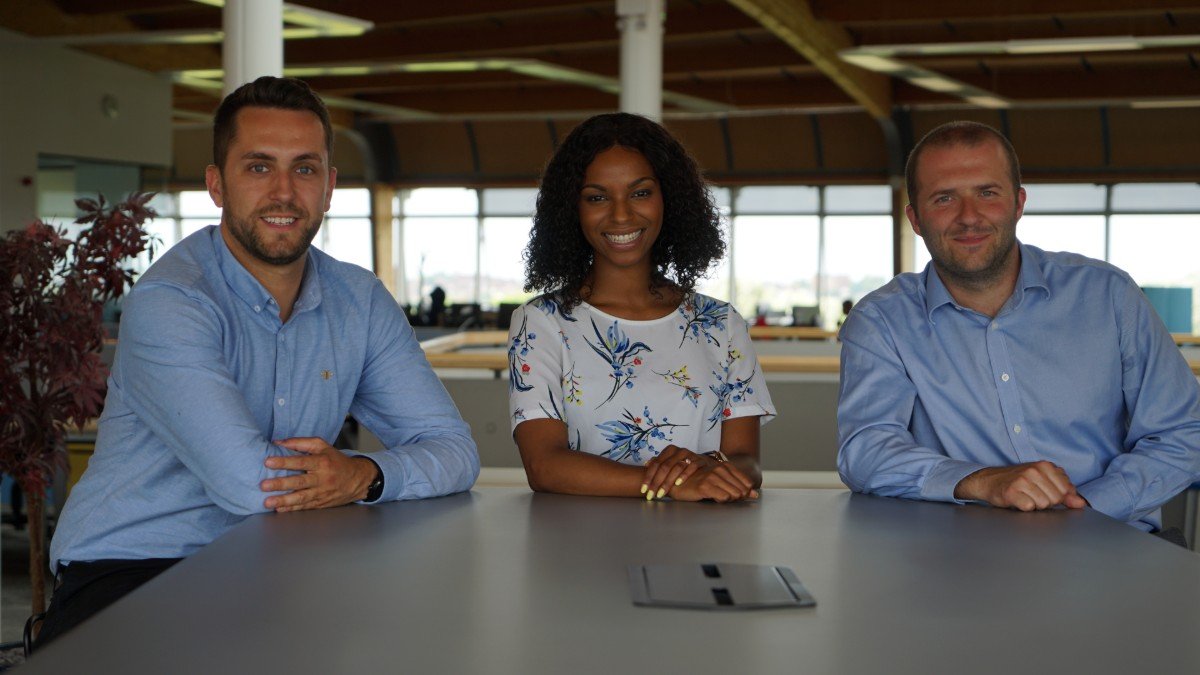Top tips for getting the most out of a recruitment fair
Recruitment fairs provide an excellent opportunity for you to meet university representatives and find out more about courses, entry requirements and student life.
We met up with Peter, Matthew and Ann-Marie from the international recruitment team to ask them about what they do and for their advice on how to get the most out of visiting a recruitment fair in your home country.

Who are you and what do you do at the University of Surrey?
P: Hello, I’m Peter Muncey and I am Deputy Head of International Recruitment.
M: I’m Matthew Crisp, the Senior International Officer for East Asia.
AM: And I’m Ann-Marie Agyeman. I’m the Senior International Officer for Africa.
What do you do in international recruitment?
P: I work closely with colleagues across the University to encourage students to choose the University of Surrey. I manage a great team of staff and between us we travel to many countries to meet with students, attend recruitment fairs and work with our overseas representatives (also called agents).
M: Primarily our role is to recruit students for the University. This includes meeting them overseas, welcoming them on campus visits and supporting an extensive agent network to firstly attract and subsequently make prospective students aware of the benefits of studying at Surrey.
What happens at a recruitment fair?
P: Basically it’s like an education market place. You can meet lots of different university representatives, ask them questions and pick up some brochures.
M: Students interested in studying abroad use this as an opportunity to either take the first steps in determining which institution they would be interested in studying at, or to conduct further research by talking to representatives of institutions they already have a strong interest in applying to.
AM: It’s a really accessible and easy way for students to find out about many universities all at the same time.
What should students do to prepare for the fair?
P: You should consider questions you might want to ask and it is worth researching important aspects like entry requirements, courses on offer and university locations.
M: Depending on the stage of interest, students can prepare a list of universities to approach before they arrive, as well as some questions to ask which could include further information about their specific course of interest, facilities, location or employability.
What is a vital thing that students should do at a recruitment fair?
P: I think it’s vital to be well prepared so that you have the best questions ready. This may vary from one student to another, but if for example you wanted to gain work experience while you are studying you may want to find out what kind of placement opportunities are available.
M: Exactly. And don’t be afraid to ask the university representative everything you want and need to know. It’s the best opportunity students will get to speak to someone directly from a university.
What is something that is usually missed or forgotten about at a recruitment fair?
M: Many students fail to engage enough with the material universities provide, which is often specifically aimed at international students. It’s not a race to collect prospectuses, information sheets or leaflets! Take some time to look and read through the information provided.
What should students do or think about after the fair?
P: Students should use this time to conduct some more in-depth research on the universities that they are interested in. UK education is a big investment so my advice is research, research and more research, as you want to make the right choice for you.
AM: Look at things like programme specification, location, budget and then research what student life is like and how your time would be spent outside of your academic studies.
Tell us what your team do to prepare students for the transition to a UK university?
P: We talk to students about the course and what support the University offers them during their time with us. We also tell them about the fantastic environment both on campus, but also in the local town of Guildford and the wider Surrey area. We will often also help them by checking their documents to see if they meet the requirements.
M: Wherever we can, we do our best to connect prospective students with current students and student ambassadors who we work with on a daily basis to support our recruitment activity. These interactions often make the student feel much more at ease and they appreciate hearing from someone who shares their experience.
What do you find the most rewarding aspect of working at Surrey?
P: I mostly enjoy meeting new people and helping them with the next steps in their education.
M: Helping someone start and complete their journey of studying abroad and gaining so much from their time with us is really rewarding. Also seeing those leading successful lives as a result of their time at Surrey is great to see.
AM: As I’m an alumnus, Surrey feels a bit like a second home for me, and I find it exciting to meet students who may find a home here too while they study.
How can a student contact you or the University if needed?
You can contact international@surrey.ac.uk for general enquiries or find your respective country’s representative by visiting our international page.
Could Surrey be the right University for you?
Explore our courses and discover more about life at Surrey.